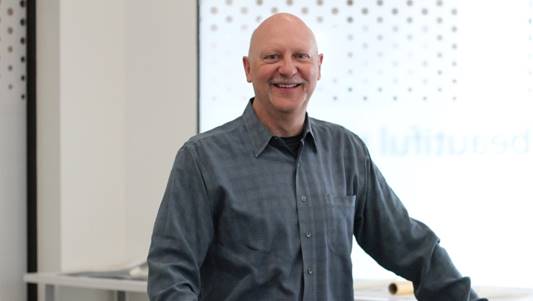Paul Hutton, principal and chief sustainability officer for Cuningham Group Architecture, Inc., has been named a 2019 LEED Fellow by Green Business Certification Inc. (GBCI). Hutton joins 29 other LEED Fellows who represent exceptional practitioners and leaders within the green building community and have demonstrated mastery of the technical application of LEED, the world’s most widely used green building rating system.
“People have always been at the heart of green buildings and this year’s LEED Fellows represent an important group of professionals who play a vital role in shaping the future of our work,” said Mahesh Ramanujam, president and CEO GBCI and the U.S. Green Building Council (USGBC). “These Fellows have used LEED to deliver on key sustainability goals that have the power to improve lives and create healthier buildings and communities for us all to enjoy. Their work has contributed to the continued growth of LEED and green buildings around the world and we’re stronger because of their dedication and commitment to a better future.”
Hutton has dedicated his 40-year career to integrating sustainable building strategies with creative design. He is a recognized expert in both daylighting and sustainable schools. Paul also is a frequent presenter at national conferences, sharing his insights and experiences on a wide variety of high-performance building practices. Paul was an early advocate of the LEED system and his projects have scored many firsts including Colorado’s first LEED Gold School in Aspen. He was the AIA’s representative to the USGBC’s Center for Green Schools for many years.
Hutton joins a select group of design professionals who have been awarded fellowships from both the American Institute of Architects and the GBCI and is the first such design professional in Colorado and the Rocky Mountain region. He was an early believer in sustainable design principles and an early promoter of the LEED rating system.
“It’s an honor to be selected as a LEED Fellow,” Hutton said. “Now, more than ever, we need to focus on issues central to the LEED system – energy efficiency, water conservation, healthy materials, indoor environmental quality, and life cycle analysis.”
LEED Fellows are nominated by their peers and must have made at least 10 years’ worth of exceptional impact on LEED and hold an active LEED AP with specialty credential, among other requirements. The evaluation process includes extensive portfolio review and is carried out by the LEED Fellow Evaluation Committee and supported by GBCI. The LEED Fellow program was established in 2011 to recognize outstanding LEED APs who have demonstrated exceptional impacts with LEED in key mastery elements related to technical knowledge and skill; a history of exemplary leadership in LEED; significant contributions in teaching, mentoring, or research with proven outcomes; and a history of highly impactful commitment, service, and advocacy for LEED.









